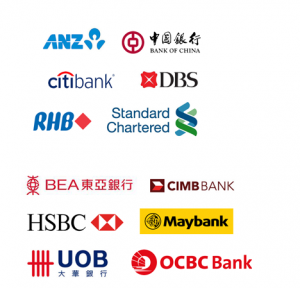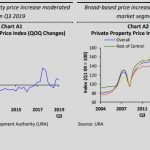Financial industry representative must have proper standing, the Monetary Authority of Singapore (MAS) responds to a Straits Times Forum letter writer
By: Hitesh Khan/

MAS in responding to letter writer Vincent Khoo, said consumers should be served by a fit and proper financial industry representative. For this, MAS reckons that it is entirely appropriate for financial institutions to assure themselves that their employees and representatives providing financial services to customers are in good financial standing.
Mr Khoo had written in to The Straits Times on Nov 21 asking. “why are companies demanding employee’s credit reports?” In his letter he said:
“Recently, many employers, especially in the financial sector, have been demanding that their employees and representatives submit their credit reports yearly to them. This is being explained as mandatory under the Securities and Futures Act, as anyone with a bad record is supposed to be “financially distressed” and is thus not a fit and proper person under the Act.
They are also perceived to be vulnerable to financial crimes and flagged as a financial risk. It is understandable if a financial institution requires your credit report when you apply for a credit card, credit line or loan.
However, it is the financial institution that initiates the credit check and pays for the report. In the employment situation, the employer mandates that the employee must apply for and submit the report to his employer personally, and, in some cases, has to pay for the report.
Why is it necessary for employers to demand that their employees submit credit reports to them? It also seems that in one particular financial institution, an employee cannot have outstanding unsecured loans of more than six times his average monthly income, or he will need to explain his situation and be subjected to three-month reviews.
One’s credit standing and financial situation should be private and not be subjected to an employer’s prying eyes. The relationship between a financial institution and an employee is only a contract of employment, not a fiduciary one. It may even be against the Personal Data Protection Act for an employer to demand his employee’s credit report.
Can the Monetary Authority of Singapore comment on this situation?”
Financial industry representative must be sound
Table of Contents
In responding to the letter writer, MAS said that it requires FIs to conduct due diligence checks to ensure that their employees and representatives who serve customers are fit and proper.
“Financial soundness is one of the fit and proper criteria, along with honesty, integrity and reputation, as well as competency and capability. Regulators in other jurisdictions such as the United Kingdom and Hong Kong apply similar criteria that include financial soundness.
Representatives of FIs transact for customers and some provide financial advice. Considerable trust is placed on them by both customers and the FIs they represent. It is relevant for FIs to consider if their representatives are of good financial standing. FIs minimally ascertain that the representative is not an undischarged bankrupt.”
MAS said that FIs may also conduct additional checks on a financial industry representative in their employ
“FIs may also conduct additional checks such as requesting representatives to provide credit information from the credit bureaus or, as Mr Khoo has highlighted, monitor if representatives have outstanding unsecured loans exceeding certain thresholds. MAS does not prescribe specific thresholds of indebtedness or the frequency of periodic checks, but we consider such checks by FIs appropriate.”
MAS further clarified what is the implication on PDPA with this requirement being placed on a financial industry representative by an FI
“Mr Khoo also asked if it is against the Personal Data Protection Act 2012 (PDPA) for an employer to obtain an employee’s credit report. Under the PDPA, organisations are required to notify individuals and obtain their consent for the collection, use and disclosure of personal data for appropriate purposes. Requesting representatives to provide a copy of their credit reports for conducting due diligence checks is considered an appropriate purpose in the context of employment where financial soundness is required. It is not a breach of the PDPA.”
A financial industry representative must have good standing to maintain a high level of trust and and confidence in Singapore’s financial industry MAS insisted.
Over the past five decades, Singapore has established a sound and progressive financial center of international repute that serves both the local economy and the Asia Pacific region. As an international financial center, it is home to a high concentration of over 1,200 financial institutions which offer a myriad of products and services across diverse asset classes.
Financial markets in Singapore are well-established and the main financial services industries include banking (especially investment banking, wealth management and treasury activities), insurance and capital market (securities, futures and derivatives) services.
The key descriptors of the financial center in Singapore are: a pro-business environment that is efficient; an effective
regulatory environment; excellent infrastructure; and the availability of highly skilled and experienced pool of finance .
A report by SMU said the “banking sector in Singapore had a total asset size of around SGD 2 trillion in 2014 and there are currently more than 200 banks (including representative offices of banks) operating in Singapore. Of the 125 commercial banks, only 5 are local and 29 foreign banks are awarded full bank status. The other foreign commercial banks are either wholesale banks or offshore banks, numbering 53 and 38 respectively. Foreign full banks include global players in the banking business such as HSBC, Citibank and Standard Chartered among others. A growing number of foreign banks are choosing Singapore to be their regional headquarters or as a global platform
for banking services.”






